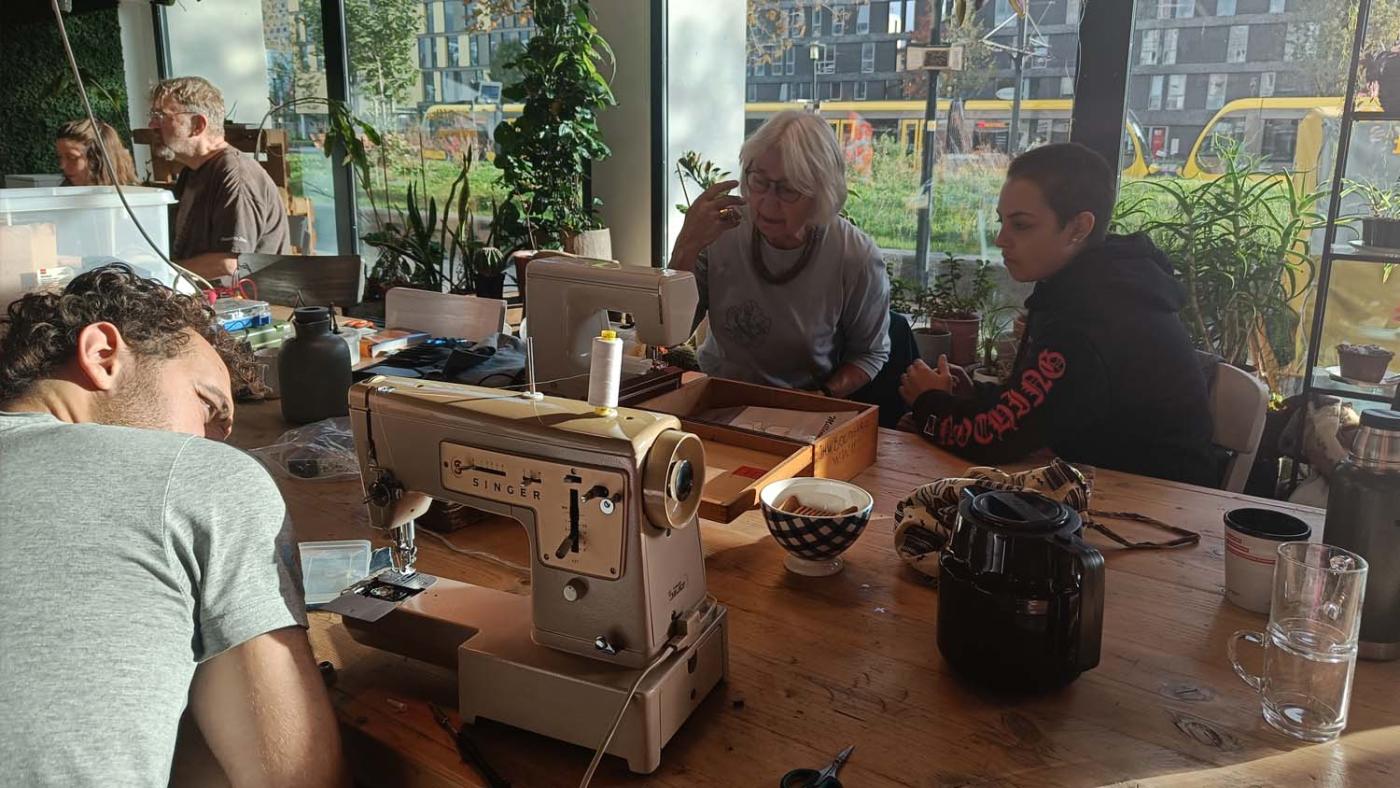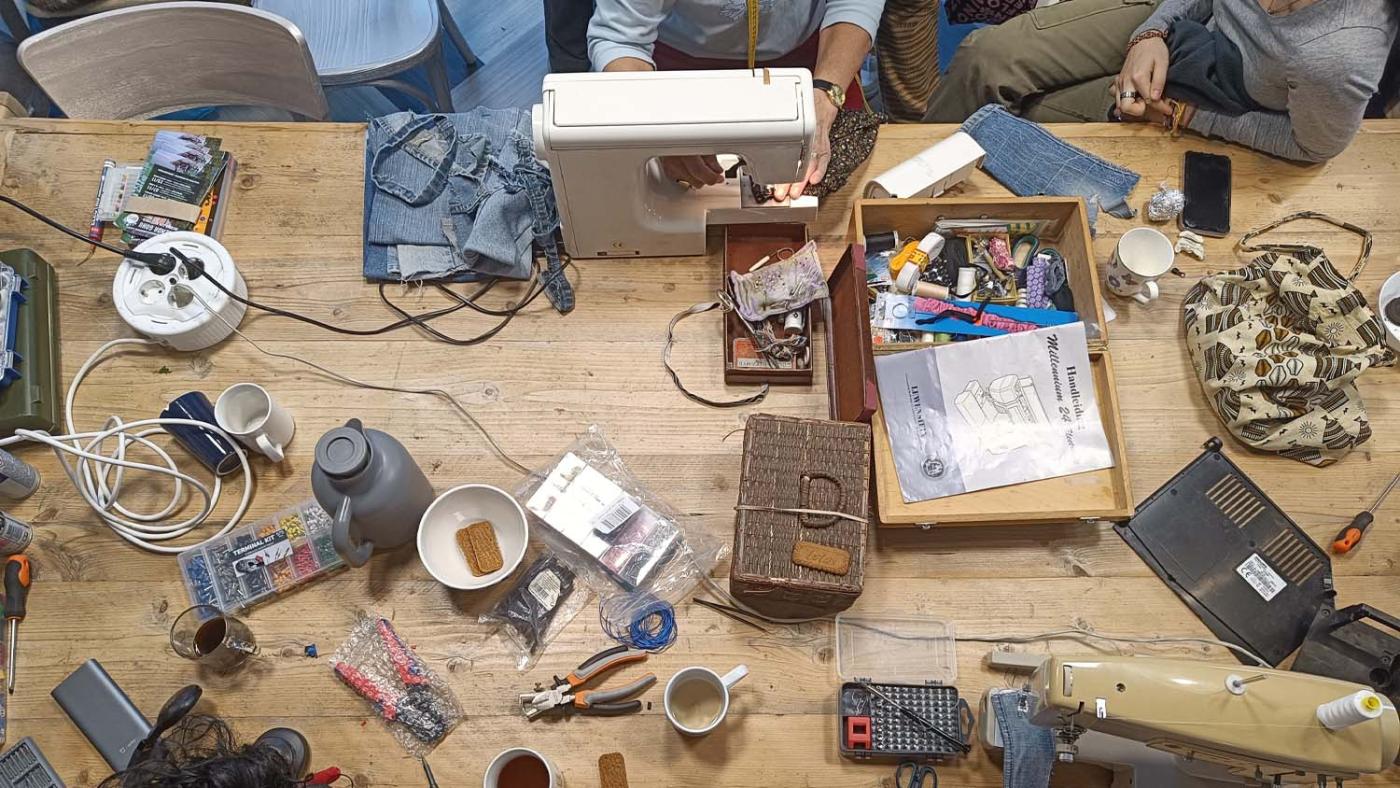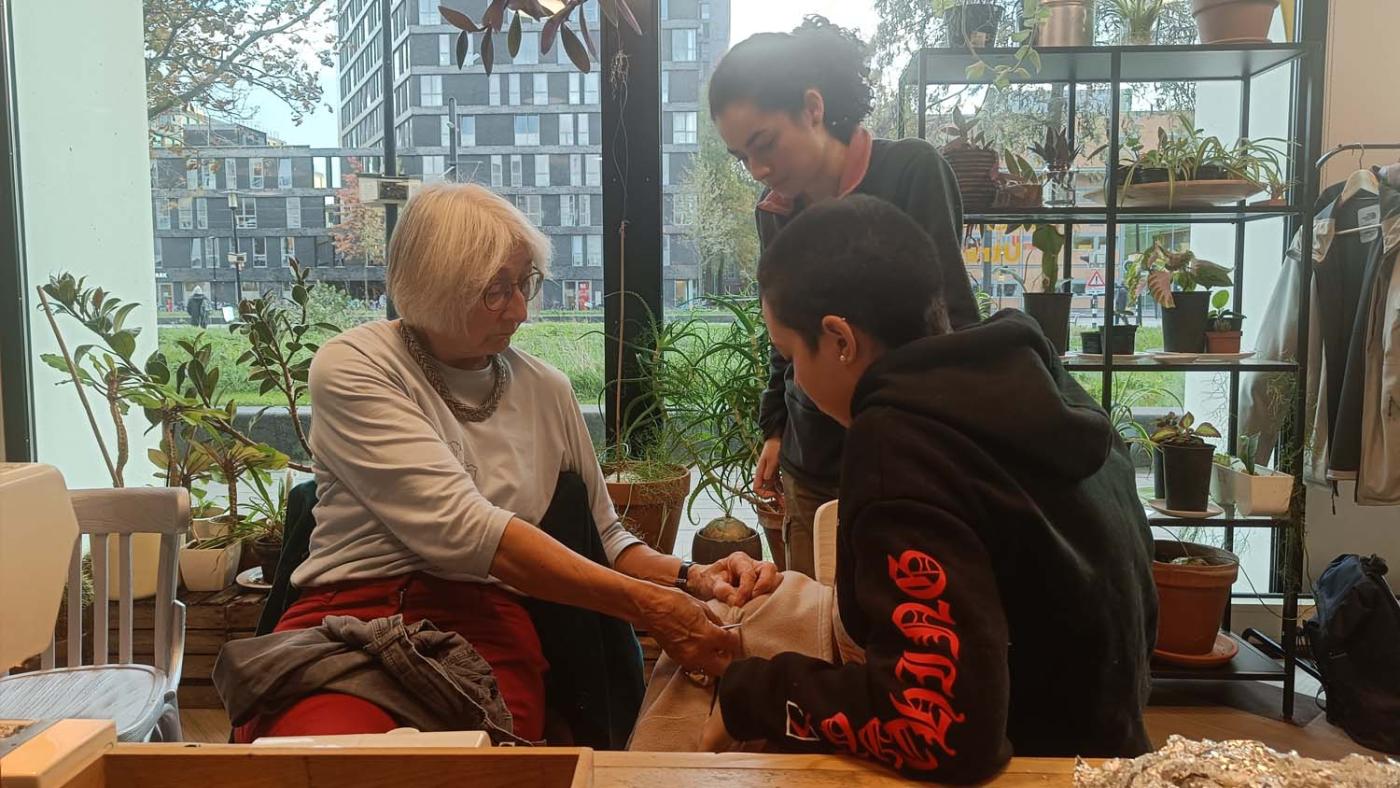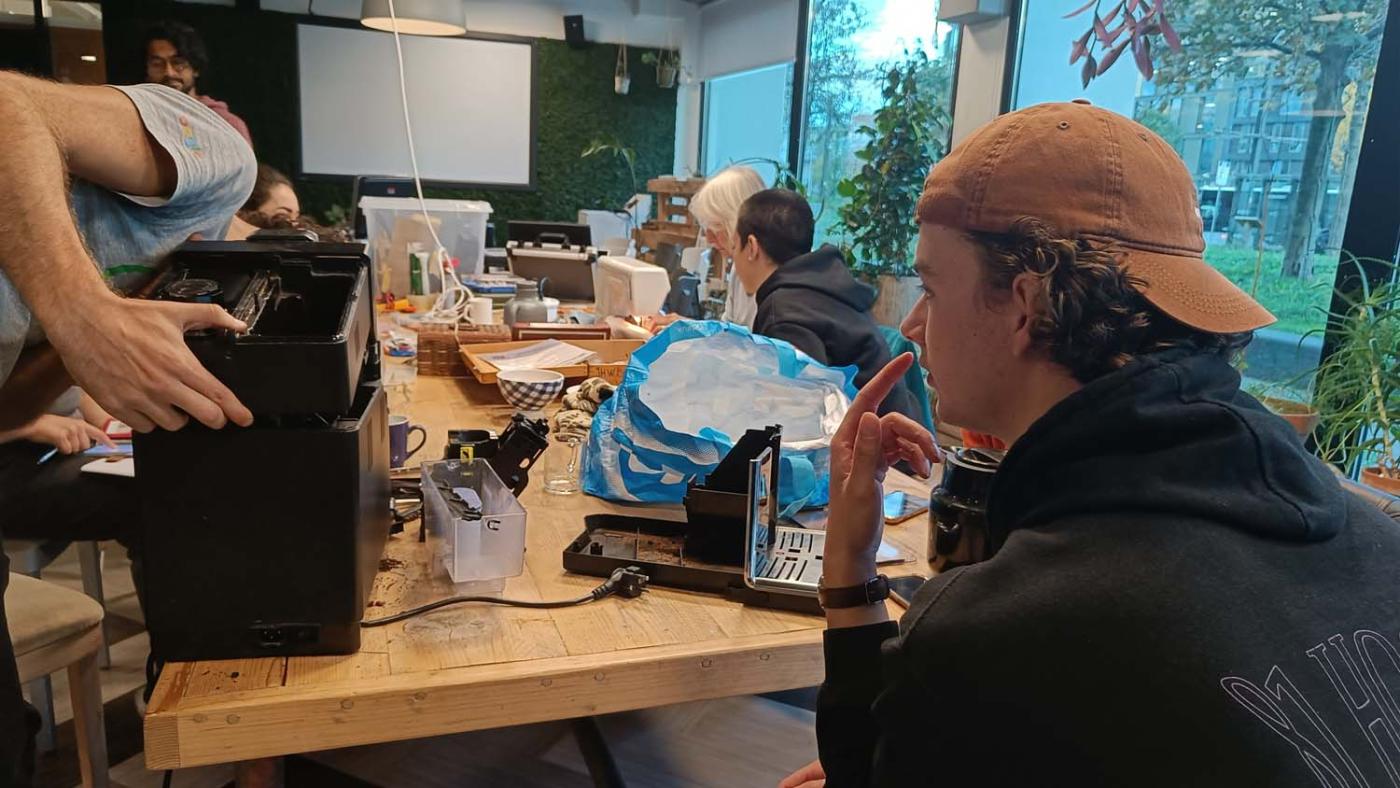Take your broken belongings to Repair Café
'Guys, please fix this device. It's not working'

It's Tuesday, November 7, 2:00 pm. Repair Café is opening its doors. The Green Office, a space verdant yet a little boring, has been transformed into a workshop with screwdrivers, pliers and sewing supplies scattered on the tables amidst cups of coffee and plates with biscuits. Five volunteers are ready to take care of visitors with broken belongings. Three of them specialise in electronic devices, while the fourth is a sewing machine wiz and the fifth is a bicycle mechanic wearing a fluorescent jacket that says "Tire patcher at home."

"Just buy a new one"
Student Lucía walks up to the volunteer with the sewing machine. She is a Repair Café regular. Last month, she went there to have a bag repaired. Now, she's brought a cardigan and a skirt. She is satisfied with her previous visit: “I walked around with a half-open bag for a month because the zipper wasn't closing anymore. I asked people where I could get my bag repaired, but everybody just told me to throw it away and buy a new one because repairing something is often more expensive than buying a new item. I’m from Bolivia, where the idea of throwing things away when they break is just ludicrous. The fact that things are so different here in the Netherlands is really shocking to me.”
Her friend and fellow student Sarah thought it was funny that Lucía was walking around with a battered bag: “I saw her with that open bag and I thought: 'What are you doing?' She even had straps wrapped around it to keep it closed. At first, I thought it was strange but now I think it’s great that she doesn’t give a damn about other people’s opinions and has the patience to wait until she can fix it.” The bag in question doesn’t have sentimental value to Lucía. This is a matter of living up to her principles. “I’d only had that bag for two years, why would I buy a new one for 50 euros when I can have my bag repaired for free?”

Sarah brought something to be repaired too. “This shirt only cost one euro but the closure loop at the back broke after wearing it only three times. It didn’t look good.” Lucía: “Unfortunately, that happens a lot when you buy fast fashion.” Luckily, Anna, the volunteer who fixed Lucía's bag, knows what to do. “Now I can wear this shirt on New Year’s Eve,” Sarah celebrates.
Arms race
The Repair Café is not just about bringing items and waiting for them to be fixed. Froukje, a former Language & Culture student, visits similar initiatives every week to learn the art of repairing from the volunteers. “Such a café is also meant to enable people to learn and get to work themselves. You are not supposed to be able to disassemble an electrical device and then put it together right away but you can try doing small things, such as replacing the battery in a watch."
Unfortunately, that's not always easy to do because some manufacturers make it hard for customers to repair their own products. One volunteer says: “It’s almost like we're engaging in an arms race with all these screws and things that don’t fit. The manufacturers just want you to buy a new one or have it repaired by them, so they can make money. In addition, there is the conundrum of consumers wanting things to be as cheap as possible yet expecting them to last a long time. Those two things usually don’t go together.”
What if a product can't be repaired anymore? Lucía notes that objects like a sewing machine or a radio can be great as home decor. But if the owner doesn’t think so, the volunteers kindly ask them to take it to the recycling centre. “We like to inform people so that they don’t throw their broken iron into a regular waste bin when they get home.”

The bike mechanic also has useful advice: “If bike thieves see a curly lock hanging from your bicycle, they just laugh at you. They can cut those things in no time. It is best to have one, or even two, thick chain locks. And always attach it to something.” Meanwhile, another volunteer is frantically disassembling an iron.
Talking about coffee
“Is this the Repair Café?” two students ask as they come in. Volunteer Mehdi isn’t busy and goes over to help. Tycho, Roos and their thirteen housemates have been without coffee for a month. They borrowed a cargo bike to transport their luxurious coffee machine to the Repair Café. “Our roommate said: ‘Guys, please fix that coffee machine, I can’t function anymore.' But many of our housemates are too lazy to come here.”
Tycho continues: “We started arguing when the machine broke. First, we discussed whether we should buy a new machine at all. Our WhatsApp group was immediately filled with pictures of brand-new coffee machines. Then, we discussed whether we wanted a machine for coffee beans or cups. We ended up deciding to go to Repair Café because we are attached to this machine and we want to be done with that endless debate. This machine grinds coffee beans, which is better for the environment.”

Tycho and Roos observe that the coffee machine in question causes a short circuit when turned on. Mehdi, a Molecular & Cellular Life Science graduate, is a self-taught specialist in electronic devices. “It all started by reading instruction books and taking old radios apart. I started learning more and more, and now I’ve built up a valuable and rare skill set that I can use to help other people. I also contribute in a creative way to reducing other people’s ecological footprints.” He bends over the device. After a major operation, he finds out it has a leak. Time has gone by so fast that it is already past 5:00 pm, so the Repair Café is about to close. Mehdi, Tycho and Roos arrange another time to see if the device will show any signs of life.
Later on, Tycho and Roos inform us that Mehdi managed to fix their beloved coffee machine. Their housemates were so happy that they named the coffee machine after Mehdi and gifted him eight craft beers. As it turns out, the Repair Café is not only good for the environment and your wallet, it is also a good way to ease tensions between roommates.
You can bring broken belongings to the Repair Café in the hope of giving them a second, third or even fourth life. Volunteers with expertise in several areas might be able to solve your problem using the many tools available. The Green Office has been organising a Repair Café every first Tuesday of the month since April. The next one will happen on December 5 at Utrecht Science Park (Address: Heidelberglaan 8), from 2:00 pm to 5:00 pm. If you have repair skills, you can also sign up as a volunteer.